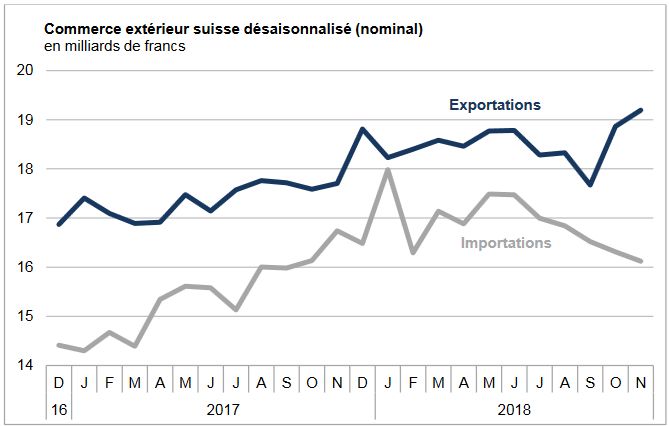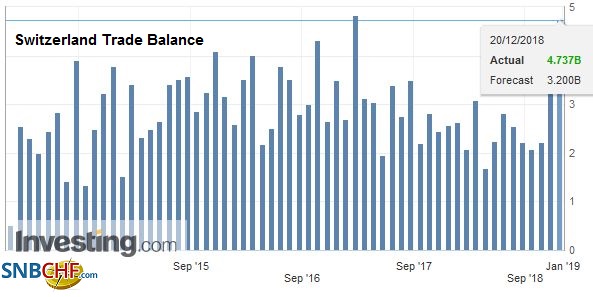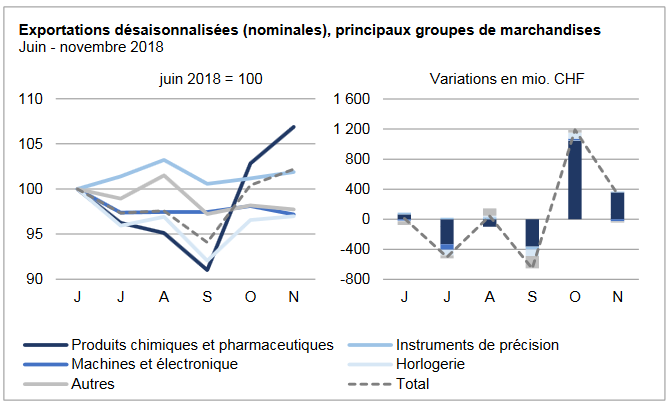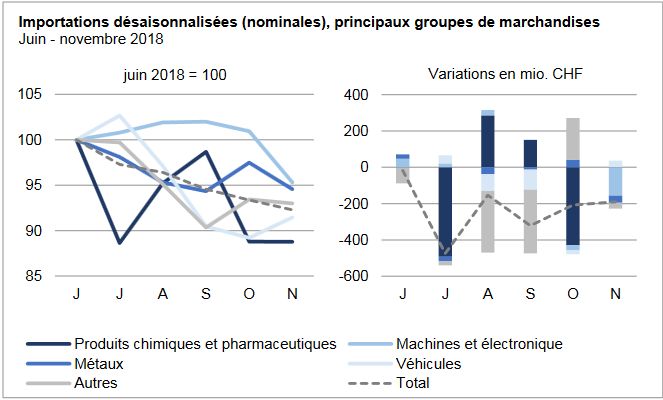We do not like Purchasing Power or Real Effective Exchange Rate (REER) as measurement for currencies. For us, the trade balance decides if a currency is overvalued. Only the trade balance can express productivity gains, while the REER assumes constant productivity in comparison to trade partners. Who has read Michael Pettis, knows that a rising trade surplus may also be caused by a higher savings rate while the trade partners decided to spend more. This is partially true. Recently Europeans started to increase their savings rate, while Americans reduced it. This has led to a rising trade and current surplus for the Europeans. But also to a massive Swiss trade surplus with the United States, that lifted Switzerland on
Topics:
George Dorgan considers the following as important: 2) Swiss and European Macro, Featured, newsletter
This could be interesting, too:
Nachrichten Ticker - www.finanzen.ch writes Die Performance der Kryptowährungen in KW 9: Das hat sich bei Bitcoin, Ether & Co. getan
Nachrichten Ticker - www.finanzen.ch writes Wer verbirgt sich hinter der Ethereum-Technologie?
Martin Hartmann writes Eine Analyse nach den Lehren von Milton Friedman
Marc Chandler writes March 2025 Monthly
We do not like Purchasing Power or Real Effective Exchange Rate (REER) as measurement for currencies. For us, the trade balance decides if a currency is overvalued. Only the trade balance can express productivity gains, while the REER assumes constant productivity in comparison to trade partners.
Who has read Michael Pettis, knows that a rising trade surplus may also be caused by a higher savings rate while the trade partners decided to spend more. This is partially true. Recently Europeans started to increase their savings rate, while Americans reduced it. This has led to a rising trade and current surplus for the Europeans. But also to a massive Swiss trade surplus with the United States, that lifted Switzerland on the U.S. currency manipulation watch list.
To control the trade balance against this “savings effect”, economists may look at imports. When imports are rising at the same pace as GDP or consumption, then there is no such “savings effect”.
After the record trade surpluses, the Swiss economy may have turned around: consumption and imports are finally rising more than in 2015 and early 2016. In March the trade surplus got bigger again, still shy of the records in 2016.
Swiss National Bank wants to keep non-profitable sectors alive
Swiss exports are moving more and more toward higher value sectors: away from watches, jewelry and manufacturing towards chemicals and pharmaceuticals. With currency interventions, the SNB is trying to keep sectors alive, that would not survive without interventions.
At the same time, importers keep the currency gains of imported goods and return little to the consumer. This tendency is accentuated by the SNB, that makes the franc weaker.
Texts and Charts from the Swiss customs data release (translated from French).
Exports and Imports YoY DevelopmentIn November 2018, exports confirmed their growth the previous month with a 1.8% increase, posting a new monthly peak. Imports, on the other hand, weakened by 1.2% and remain in a negative spiral. The trade balance closed with a surplus of 3.1 billion francs. In short: |
Swiss exports and imports, seasonally adjusted (in bn CHF), November 2018(see more posts on Switzerland Exports, Switzerland Imports, ) Source: newsd.admin.ch - Click to enlarge |
Overall EvolutionIn November, seasonally adjusted exports (compared with the previous month) rose by 1.8% (real: + 1.0%) and at the same time set a record monthly level of CHF 19.2 billion. The rebound of the previous month is confirmed. Conversely, imports fell by 1.2% (real: -1.5%); these have shown a clearly downward trend since June 2018. The trade balance surplus reached 3071 million francs. |
Switzerland Trade Balance, November 2018(see more posts on Switzerland Trade Balance, ) Source: investing.com - Click to enlarge |
ExportsThe chemistry-pharma continues its rise The rise of 332 million francs of the Swiss exports rested on the pillar of the export, the chemicals and pharmaceuticals (+358 million francs). Here, the medications fell ( – 62 million) while all other subgroups progressed. Precision instruments grew 0.7%, corroborating their growth in previous months. Watch sales gained 0.5%. Down 0.9%, the machinery and electronics sector stalled since July. In contrast to Europe (-1.1%), sales gained ground in North America (+ 5.3%; CHF +147 million) and Asia (+ 1.2%). The latter, however, denotes a flat trend. In November, China (+142 million francs), the United Arab Emirates and South Korea, in particular, gave positive impulses. The downturn in Europe resulted, among other things, from the decline in sales with Germany (-226 million), Ireland (-152 million) and France. |
Swiss Exports per Sector November 2018 vs. 2017(see more posts on Switzerland Exports, Switzerland Exports by Sector, ) Source: newsd.admin.ch - Click to enlarge |
ImportsAsian imports are reversing The decline in imports (-191 million francs) is explained by the decline in machinery and electronics (-154 million), metals (-40 million) and other goods jewelry. The machinery and electronics group has suffered a second consecutive decline while metals have been in a negative trend since June. Arrivals of the flagship group, chemistry-pharma, have been stalled for a month and have stagnated since early 2018. From a geographical point of view, the contraction in imports came from Asia (-4.7%) and Europe (-0.8%). The Old Continent has been showing a clearly downward trend since June; Asia, for its part, records a slight decrease since July. The Asian decline in November was mainly due to China cuffs (126 million francs), the UAE (104 million; jewelry) and Japan (95 million). On the European continent, growth in Ireland (+125 million, pharma) largely offset the decline in Austria (-82 million), the United Kingdom (-41 million) and the Russia (-30 million) and thus avoided a stronger decline. Despite an increase in November (USA: + 8.7%), imports from North America have stagnated since early 2018. |
Swiss Imports per Sector, November 2018 vs. 2017(see more posts on Switzerland Imports, Switzerland Imports by Sector, ) Source: newsd.admin.ch - Click to enlarge |
Tags: Featured,newsletter
